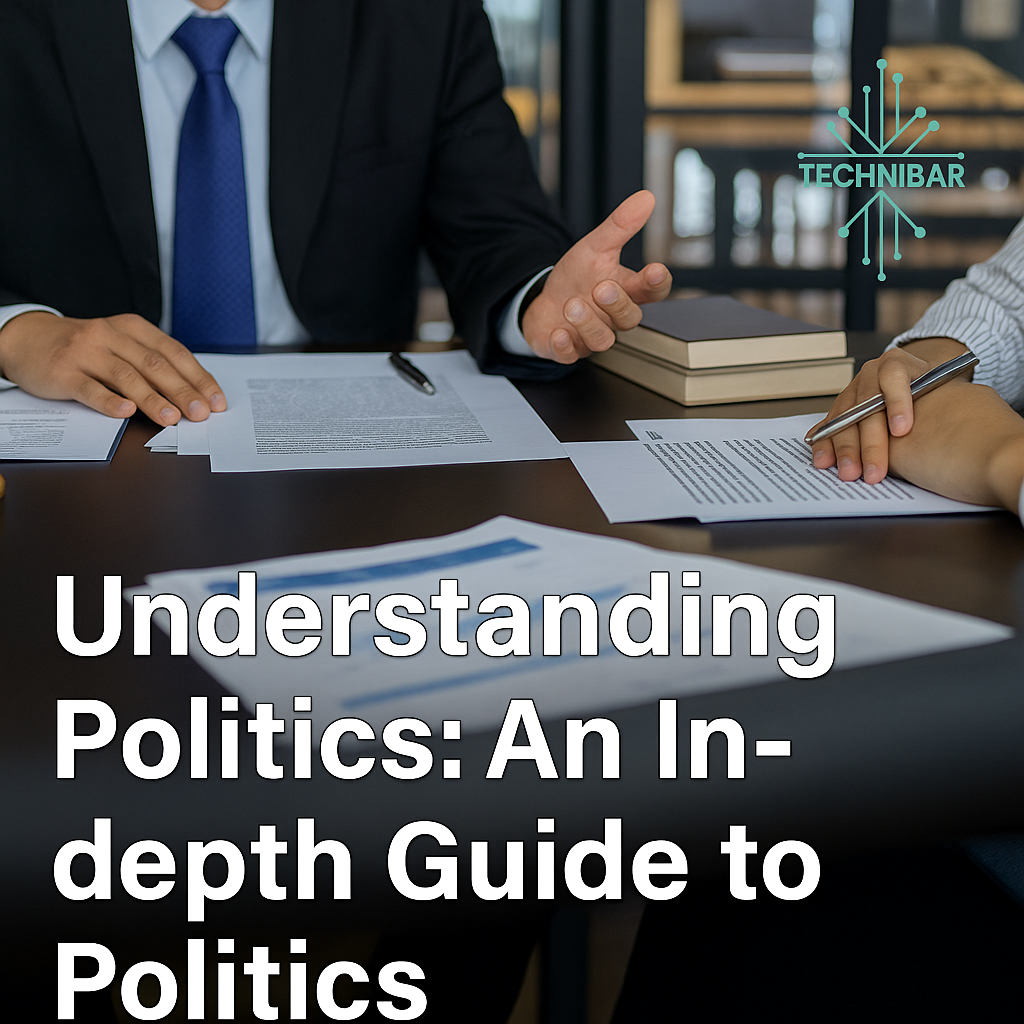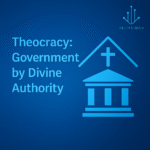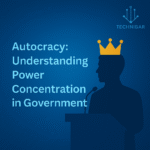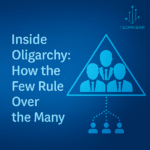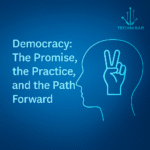Politics is a complex field that can be defined as multidimensional in a sense that influences the development of the organization and operation of societies worldwide. It involves distribution of power and authority processes, making of policies and interaction between individuals, groups and institutions. The purpose of this article is to give a thorough background about politics and attempt to get into definition as well as main concepts and the development itself over time, different systems of politics, and the importance of political participation in modern civilization.
Defining Politics
In its simplest form, politics may be described as how people arriving in groups make decisions. It is the distribution of power and resource, bargaining of interests, and also the laying down of rules and norms that determine behavior. Political activities may take place to different degrees, ranging between local communities to international relations, and may be carried out in various ways, such as governance, advocacy, and activism.
Central Ideas in Politics
1. Power: It is a key idea in the study of politics that defines the capacity of individuals or groups that can dictate or rather impact the actions of others. It may take a number of different forms such as, political power, economic power and social power.
2.Authority: Authority refers to the legitimately conferred power of individuals or institutions, which is commonly based on either a legal or traditional administration. It is fundamental to ensuring sanity and regulating a society.
3. Governance: Governance is the way in which decisions are made and implemented. It involves the contributions of government agencies and institutions of government, civil society, and the private sector to policy formation and governance of common goods.
4. Ideology: These are a band of political beliefs and values that help to inform political conduct and policy preferences. Prominent ideologies are liberal, conservative, socialist and nationalism, which have varying views on areas like personal rights, economy and governmental functions.
5. Political Culture: Political culture refers to the attitudes, beliefs and values that form the political behavior of persons and groups in society. It determines the nature of how citizens participate in politics, the degree of trust they have toward institutions, and their involvement in civic life.
Historical of Politics
Politics can be traced back to ancient civilizations, and it has evolved over time where early forms of governance started taking place. The parts below outline some of the most important historical events that have formed the modern political systems.
Ancient Civilizations
Mesopotamia and Egypt: The first known forms of polity were in the region of Mesopotamia and ancient Egypt, where the city-state and kingdoms were led by monarchs. Many of these rulers insisted on divine powers creating a theological foundation to government.
Greece: Ancient Greece was considered the origin of democracy. The city-state of Athens evolved into a direct democracy where citizens became part of the decision-making. The foundations of political thought were formed by philosophers like Plato and Aristotle, as well as their discussions of justice, government, and the citizen.
Rome: The Roman Republic became the first to establish representative governance which involved elected representatives whose interests were represented to those of the citizens. The republic to empire transformation also meant a dramatic change of political influence as emperors enjoyed complete power.
The Middle Ages and the Renaissance
Feudalism: Feudalism replaced many of the features of the Middle Ages, as it was the main political system in Europe. It was decentralized and local lords had power over their regions although they were loyal to a monarch.
The Renaissance: The Renaissance resulted in a rebirth of concern with classical political thought. Philosophers like Machiavelli placed a strong emphasis on power and statecraft, which has subsequently been used in modern political theory.
Enlightenment Modern Political Thought
The Enlightenment: During Enlightenment, people had concepts of equality, liberty and individual rights. Philosophers such as John Locke, Jean-Jacques Rousseau, and Thomas Hobbes helped develop the concept of social contract by encouraging the notion that governments obtain their power because they are granted rights by the people.
Revolutions: The late 18th century saw great turning points of political history with the American and French Revolutions. These revolutions discredited royal rule and introduced norms of democracy, human rights and rule of law.
Political Systems
There are several different types of political systems with specific features and governance systems. Some of the most prevalent political systems are described below:
Democracy: Democracy is the form of government in which the ultimate authority rests with the people or their representatives. Major attributes of democracy are:
Free and Fair Elections: People are free to vote through regular free, competitive elections in order to elect their representatives.
Rule of Law: Every citizen is treated equally before the law and the government activities can be considered under the law.
Human Rights: Democracies value the rights and freedoms of individuals, such as the right to freedom of speech, assembly and the press.
Authoritarianism
Authoritarianism is a political regime that is dominated by a central position of power or by a few individuals. Major characteristics are:
Low Political Pluralism: There is little political pluralism and dissenters can be muted.
Centralized Control: The State has control over most spheres of life such as media, civil society, and economy.
Political Freedoms: There are no sufficient political freedoms to allow the citizens to be part of the political processes or to express their views freely.
Totalitarianism
Totalitarianism is a radical type of authority when the state attempts to regulate all spheres of both public life and individual life. Major characteristics are:
Ideological Control: Only one ideology is propagated and any critique is not allowed.
State Surveillance: The state is highly surveilled and how governments oppose and suppress it.
Suppression of Individualism: They contain excessive control over personal liberties, and the people are supposed to be identical to state ideals.
Federalism
Federalism is a political structure whereby the powers are distributed among a central government and the regional or state government. The main features are:
Shared Authority: Each of the two levels of government can legislate and govern within the areas they have authority.
Constitutional Framework: The document is a constitution that defines the roles and authority of each tier of government.
Local Autonomy: Regional governments are able to respond to local concerns and issues.
Role of Political Engagement
A healthy democracy cannot exist without political participation. It involves diversities of participation such as voting, advocacy, activism, and civic education. The succeeding paragraphs discuss the necessity of political participation in modern society.
Voting
One of the basic ways through which citizens can engage in the political process is through voting. It enables people to attach their preferences and to participate in the process of choosing representatives and policies. A representative and responsive government may be related to high voter turnout.
Advocacy and Activism
Advocacy is the process of supporting a particular cause or policy, which may be done by organized activities aimed at decision-makers. Activism is a wider scope of action that aims to implement social or political change. Mass action, action groups, and campaigns are important to promote awareness and gather public support around certain issues.
Civic Education
To create knowledgeable and active citizens, civic education is necessary. It is the process of educating people about their rights, duties and how political systems work. An informed populace is in a better position to engage in the political process and check those in authority.
Impact of Technology
Political engagement changed with the emergence of technology and social media. New opportunities to communicate, mobilize and share information occurred with the introduction of online platforms. Although technology can facilitate greater engagement, there are also issues involved, including the propagation of false information and the risk of polarisation.
Issues in Modern Politics
Although the current political systems and involvement are more advanced in comparison to the past, modern politics has a number of issues that endanger democratic rule and unity.
Polarization
Political polarization can be described as increasing separation between conflicting political opinions and factions. It may give rise to a greater presence of hostility, a lack of cooperation, and a breakdown of civil discourse. Polarization prevents the possibility of neutral ground and solving burning social problems.
Misinformation
The spread of disinformation, especially through social media, should be considered a formidable threat to informed political participation. Misinformation can misalign popular opinion, affect election patterns, and waste institutional confidence.
Inequality
The existence of political unequal groups that assume disproportionate powers in the political processes challenges the concept of democracy. Political powers and representation can also be restricted due to economic inequalities in society, social stratification, and institutional discrimination.
Globalization
Globalization has integrated economies and societies, and this has posed both an opportunity and a challenge. Although it may facilitate collaboration and cultural exchange, it also intensifies disparities and conflicts between national decision-making and world governance.
Conclusion
The sphere of politics is dynamic and multifaceted and determines the life of people and communities. Penetrating its major concepts, historical development and different systems is the basic approach to contemporary political discourse. Advocacy, civic education, and casting votes are all essential forms of political participation, but the latter is also among the key factors in promoting a healthy democracy. But such issues as polarization, misinformation, and inequality have to be mitigated to guarantee that political systems will be responsive and inclusive. As citizens, it is essential that they actively take part in the present-day political complexities so as to create a fair and equal society.

